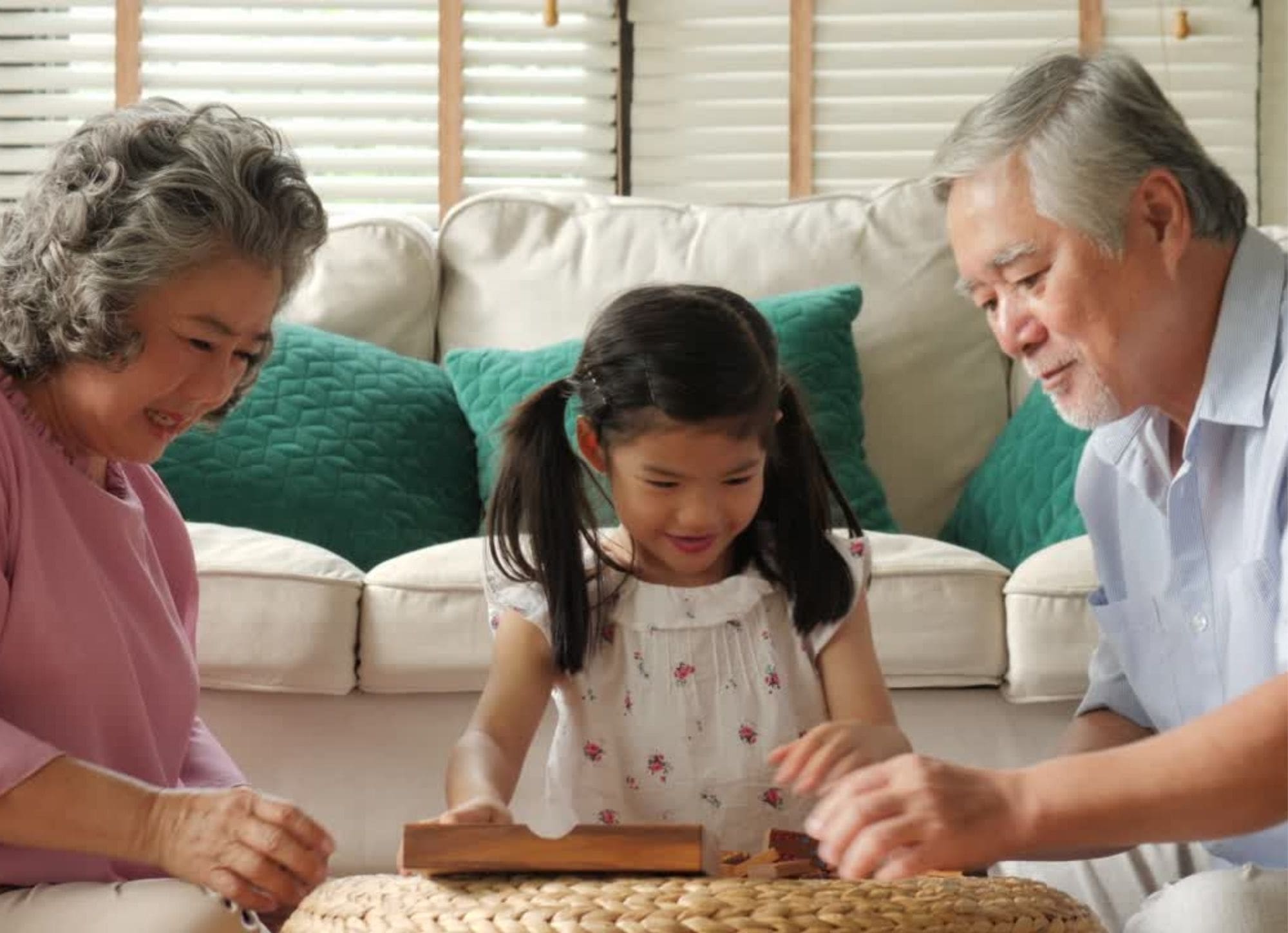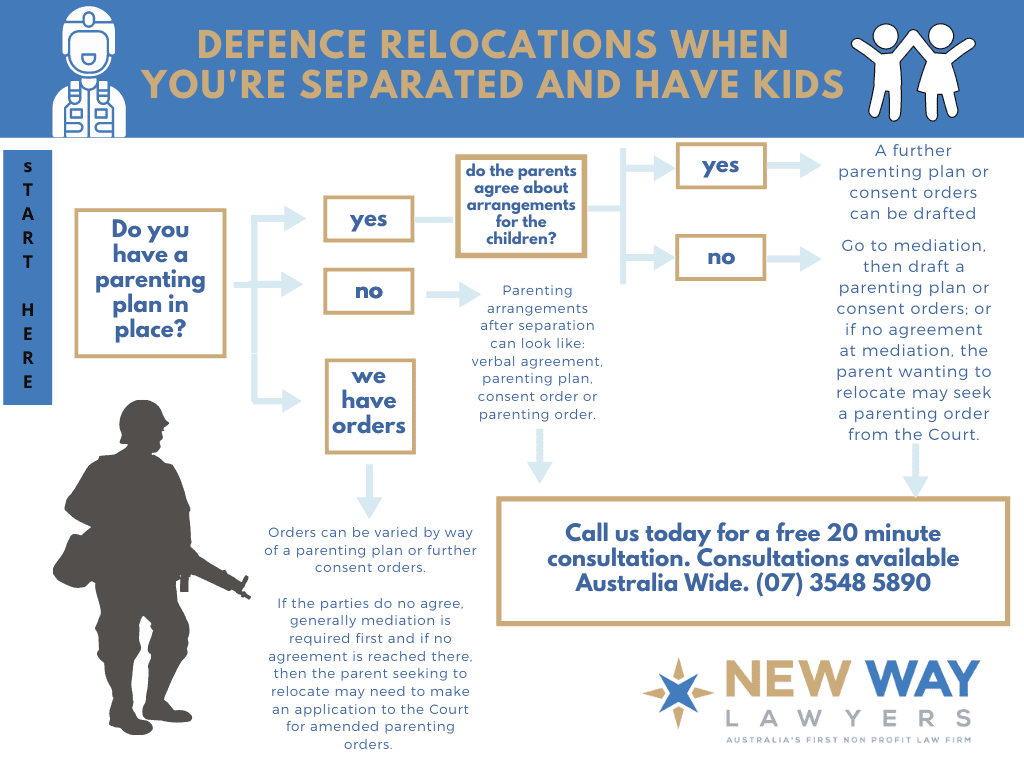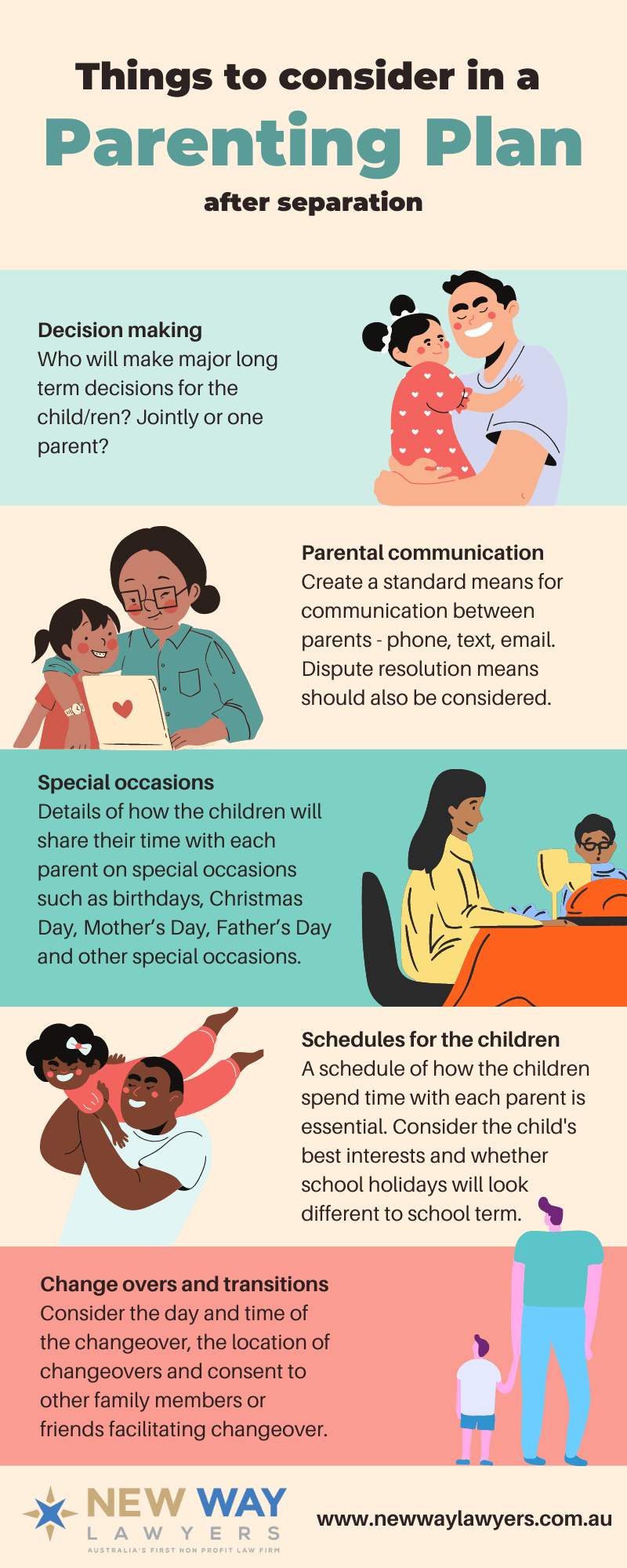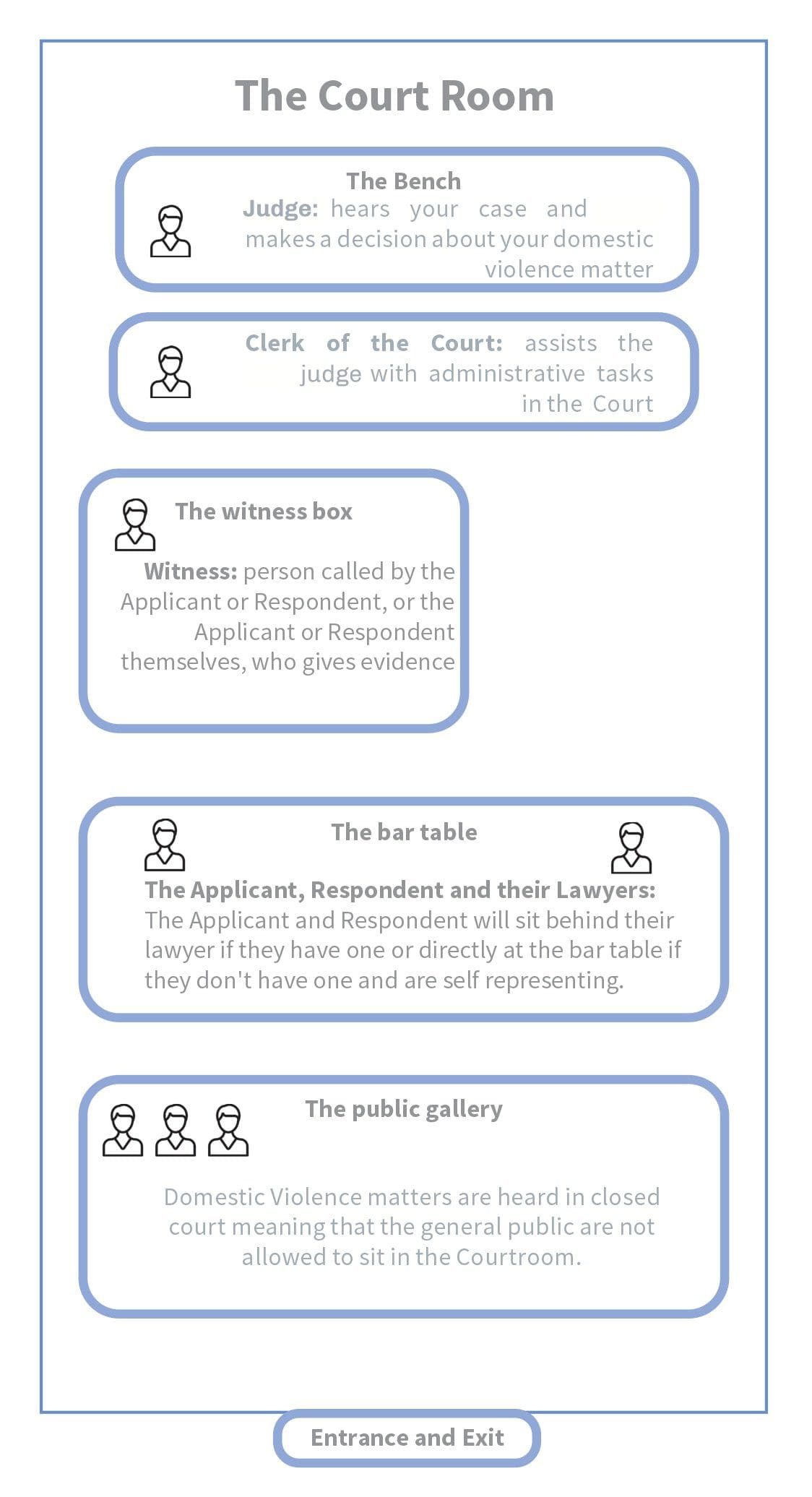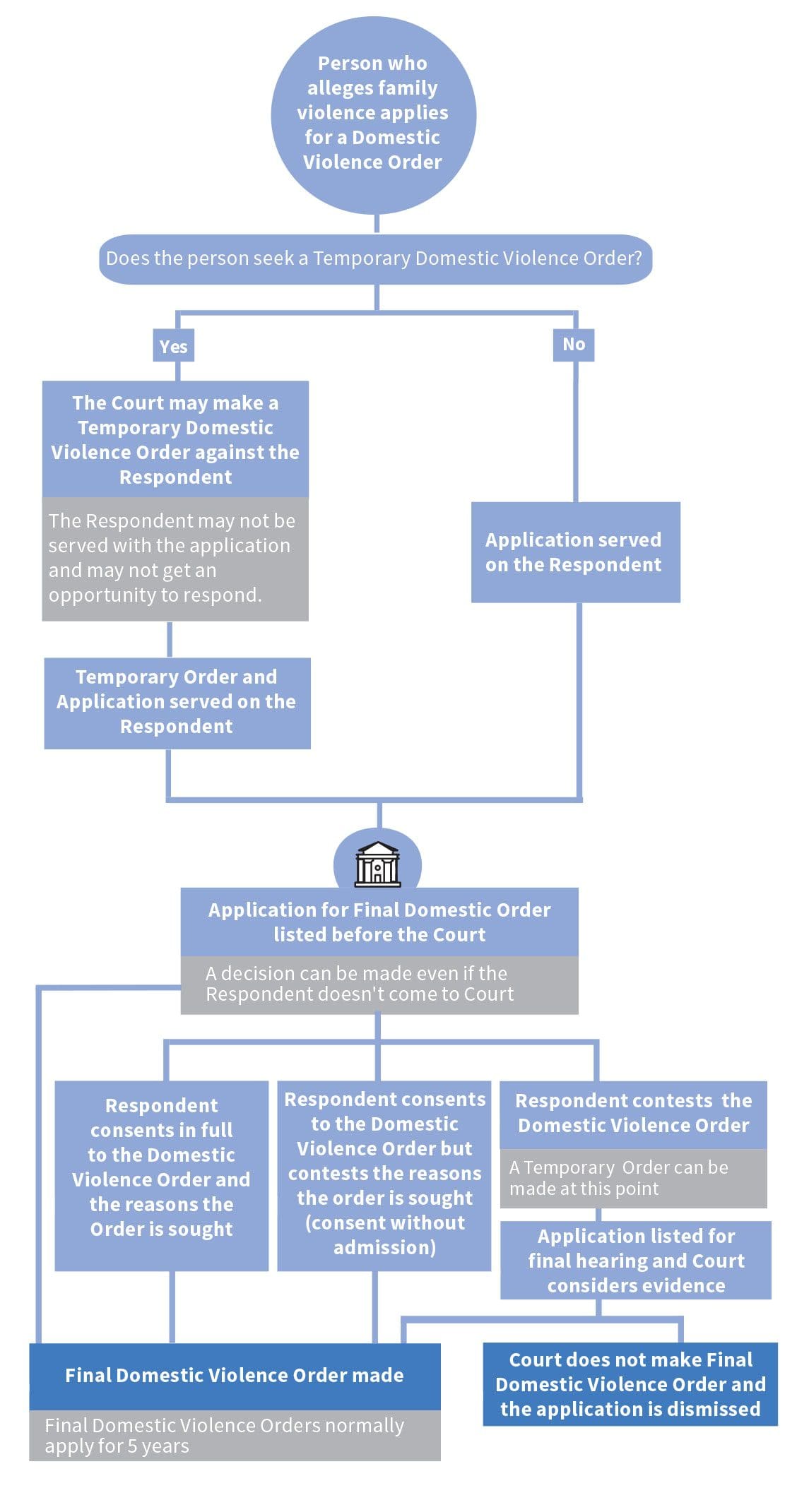-
Grandparenting and family law: What you need to know?
May 18th, 2022 | by newwaylawyersDo you care for or raise your grandchildren? Are you concerned about your grandchildren’s safety? Are you prevented from spending time with your grandchildren? Issues such as these can cause great strain and stress so we are going to explain some simple steps you can take if these issues are impacting you and your family.
The Family Law Act 1975 (Cth) is federal legislation, meaning it applies to all States and Territories in Australia, and it covers arrangements regarding separation, divorce, property and financial settlement and parenting of children. Under the legislation, the principle of the best interests of the child is central to all decisions made about children and a key focus of the legislation is a child’s right to be cared for by both parents and other people who are significant to their care, welfare and development, including extended family members and grandparents. In fact, Grandparents are specifically recognised in the Act and their importance in grandchildren’s lives is acknowledged. Grandparents can therefore, make an application to the Family Court and Federal Circuit Court of Australia (FCFCOA) with regard to their grandchildren. It is important to note, however, that although grandparents can make an application to the FCFCOA, it will be subject to what is in the child’s best interests.
When deciding what is in a child’s best interest, the FCFCOA considers a number of factors including:
- Protecting the child from harm including whether any domestic violence or abuse that may impact upon the child’s safety
- The wishes and views of the child, depending on the child’s age and stage of development
- The child’s relationship to their parents, grandparents and significant others
- The impact any change to current living and spending time arrangements will have on the child
- Practical implications of spending time and being in contact with a parent, grandparent or significant other
- The attitude, circumstances, capacity and ability of the person making the application to provide for the child’s needs and uphold their best interests
- If the child is of Aboriginal and Torres Strait Islander background or of a culturally and linguistically diverse background, the child’s right to understand their culture
Are you being prevented from spending time with your grandchildren?
If you are being prevented from seeing your grandchildren options for seeking to spend time with your grandchildren include;
1. Family Dispute Resolution
Family Dispute Resolution (FDR) is a process where parties’ in dispute meet with a Family Dispute Resolution Practitioner (FDRP) in a safe and contained forum to discuss issues causing conflict. FDRP’s are able to work with families in dispute to reach mediated parenting agreements that can be formalised into consent orders if the parties’ agree. FDR is cheaper and more emotionally supportive than entering a Court process.
To find more information about family dispute resolution services, go to Relationships Online; www.familyrelationships.gov.au or call 1800 050 321. You can also find more information about FDR and FDRP’s by going to; www.ag.gov.au/fdrproviders
2. Legal Advice From a Family Lawyer
It is always wise to speak with a family lawyer about your situation and your legal options. Seeking legal advice does not automatically mean you are starting a litigious process. Legal advice can sometimes simply help you understand your legal rights and options for pathways forward.
If you would like to book a free 20 minute consultation, contact us.
Are you a Kinship or Grandparent Carer?
Sometimes children cannot live with their parents and live with a grandparent, extended family member or friend who becomes their primary carer, also known as their grandparent carer or kinship carer. Children live with grandparent and kinship carers for different reasons and for different amounts of time, depending on the circumstances. If you are a Grandparent or Kinship Carer, you can still apply for parenting orders as a person who is concerned for the care, welfare and development of the child. For more information, seek legal advice or to go www.fcfcoa.gov.au.
Financial Support for Grandparents?
Grandparents may be eligible for financial support to assist with the cost of caring for a grandchild. A grandparent can claim Medicare benefits for medical expenses for a grandchild in their care. Other government benefits and support may also be eligible to be paid. Finally, it may be possible for a grandparent to claim child support from the child’s parent. Enquiries about financial support can be made with the Commonwealth Department of Human Services.
-
The New Family Court & Federal Circuit Court (FCFCOA)
March 3rd, 2022 | by newwaylawyersYou may have heard about the merging of the Family Court and Federal Circuit Court of Australia (FCFCOA) on the first of September 2021, but many are wondering what this means for them as individuals utilising Family Court services.
Essentially the merging of the Courts means that there is now a streamlined single-entry point for Family Court proceedings, with a goal to making processes quicker and easier to navigate. With the merging of the Courts came the introduction of new rules that applied to all proceedings from the 1st of September 2021.
A National Assessment Team has been created to triage and assess matters and allocate them appropriately to any relevant specialist list for example the National Contravention List, the PPP500 List or the Evatt List.
Most useful to applicants, however, is the new Central Practice Direction that provides guidelines for the Court’s case management system. The Central Practice Direction aims to provide a consistent National approach to managing FCFCOA proceedings and ensure that unnecessary costs and delays are kept to a minimum. You can read the Central Practice Direction by going to https://www.fcfcoa.gov.au/fl/pd/fam-cpd

While Family Dispute Resolution (FDR) has been encouraged by the family law system over the past decade, the new FCFCOA emphasises FDR in its case management process. By encouraging FDR more strongly, it is hoped that parties’ identify and resolve issues in conflict independently and without the assistance of the Court. Prior to commencing proceedings in the FCFCOA, for example, parties must attend FDR for financial and/or parenting matters and make a genuine effort to resolve the issues in dispute unless it is unsafe for either party to attend FDR. Failure to attend FDR or genuinely take steps to resolve issues, can result in consequences such as orders for costs being made against a party.
If you have questions about FDR, go to www.familyrelationships.gov.au or www.fcfcoa.gov.au
If you have a question about your own situation, feel free to ask your question by joining our facebook group Lunch with a Lawyer or contacting us for a free 20 minute consultation.
-
Defence posting relocations, separation and child custody arrangements
October 8th, 2021 | by newwaylawyersPosting relocations are difficult for Australian Defence families at the best of times, but even more so when the move occurs following separation and there are parenting arrangements to consider. Emotions are often intensified and feelings of uncertainty can arise for children and parents alike. Our experienced family lawyers have helped many Defence families with questions about family law and posting relocations. Set out below is some general information that may be helpful to families who find themselves in this situation.
For those newly separated in the Australian Army, Navy or Air Force
there are four approaches parents can take to parenting arrangements after separation. These are a verbal agreement, parenting plan, consent order or parenting order. To determine which might be best for you, take this simple quiz.
Is there separate rules for those in defence?
There are no separate rules for parenting arrangements when it comes to Australian defence relocation or deployment matters. The relevant objects and principles set out in the Family Law Act 1975 (Cth) guide the court, with the child’s best interests as the primary consideration.
What sort of orders can the court make?
The court has the ability to make broad orders including permitting a child to locate ‘wherever’ the parent in question was posted by the ADF, so long as this was in Australia. Two relevant recent cases on this matter are Wendland & Wendland [2017] FamCAFC 244 and Osmond & Brand [2019] FCCA 1696.

For those with a parenting plan in place
If you and your ex spouse or partner already have a parenting plan in place and there is no urgency involved, then the process can involve:
-
If the parties agree to the move
When both parents agree to the child/ren relocating with the defence member, a further parenting plan or consent orders can be drafted. The things that should be considered in a parenting arrangement can be found here.

-
If the other parent doesn’t agree to the move
When there is disagreement between the parents regarding the relocation of the child/ren, then generally mediation is compulsory (there are however some limited exceptions to the requirement for mediation). If an agreement is reached at mediation, then a parenting plan or consent orders can be drafted thereafter. If an agreement is not reached, the parent wanting to relocate may at that point need to seek a parenting order from the Court.
For those with court orders
When there are existing court orders, the parties will need to vary the orders to accommodate the new situation. This can be done by way of a parenting plan or further consent orders if the parties are in full agreement about the new arrangements. .
If the parties have existing orders but they do not agree on the move, then they will generally have to attend mediation first before going to court to seek variation of the orders. If there is no agreement reached at mediation, the parent seeking to relocate may need to make an application to the Court for amended parenting orders. The application would however have to satisfy the Rice v Asplund test. This threshold test is explained here.
Considerations that are relevant to parenting arrangements in Defence relocation / posting matters
It is well established that the best interests of the child include the minimisation of future proceedings and litigation. In light of this, the Court will try to ensure any further orders address the issue of future deployments, even if the details of future postings are unknown at the time the orders are being made.
In light of this, the court may consider whether one parent should have sole parental responsibility rather than an equal shared parental responsibility. The court might also consider whether orders should be made with two alternatives included, one allowing for arrangements that apply when the parents live in close proximity and the other for when the parents are living a long distance apart due to deployment or relocation.
Get expert family law advice early

Defence relocations are complex in nature and the considerations involved in these cases are varied and specific to each family. We highly recommend getting legal advice from expert family lawyers if you or your ex partner/spouse are relocating due to a posting order with the Australian Army, Air Force or Navy.
If you would like to discuss your options or the particulars of your case, phone New Way Lawyers on 1300 043 984 or contact us here for a free 20 minute consultation with one of our expert family lawyers. Australia wide consultations are available.
-
-
Parenting Arrangements After Separation
September 15th, 2021 | by newwaylawyersFollowing separation there are four approaches that parents can take when setting up future parenting arrangements for their children. Determining which approach is best depends on several factors.
How should I structure parenting agreements after separation?
If you are a parent who has recently separated, answer the 3 questions below to find out which approach might be suitable for your family. Read each question and answer A, B, C or D choosing the response that best describes your situation .
The communication between you and your ex is generally:
- Very good – we communicate regularly and easily and agree about most parenting matters;
- Good – we communicate when required and when we have differences, we work these out;
- Poor – we communicate mainly by text or email and struggle to resolve our differences;
- Non-existent – we are unable to communicate at all and disagree about everything.
The level of trust between you and your ex is generally:
- Very High – we keep our word and uphold our agreements;
- High – there have been a few minor issues with agreements not being followed;
- Low – there have been times when core agreements have not been followed;
- Very Low – there is no agreement to uphold.
Describe your preference regarding the structure for parenting arrangements:
- Very Low: flexibility and being able to change arrangements as needed is a high priority;
- Low: routine has a place but the ability to make changes to arrangements is more important;
- High: routine is important and the ability to make changes should be limited;
- Very High: consistency and certainty are very important.
Your results suggest…
Mostly A’s – A verbal agreement may be the suitable arrangement for your family.
Mostly B’s – A parenting plan may be the preferred pathway for your family .
Mostly C’s – A consent order may be the best option for your family.
Mostly D’s – A parenting order made by the court may be what is needed for your family.
What things should I include in my parenting arrangement?
For the things you should include in your parenting arrangement, see the image below and further information can be found here.

The above should in no way be construed as legal advice. If you would like legal advice about parenting arrangements or other family law matters call (07) 3548 5868 for a free 20-minute phone consultation with one of our family lawyers.
-
Tips for self representing at Court in domestic violence matters
April 12th, 2021 | by carolyn.newwaylawyersWhile there is no specific dress code the Court requires visitors to recognise that it is a formal place and individuals should therefore dress accordingly.
Do wear:
- Neat, clean and ironed clothing
- Dress shirt or blouse, open-collar or polo shirt
- Long pants or a dress or skirt at knee-length or below
- Blazer, sweater or cardigan as it may become cold
- Comfortable shoes that cover all or most of the foot
Do not wear:
- Thongs
- Singlets
- Fluoro colours
- Hats, helmets or sunglasses
What should I take with me?
Being prepared is important. You should ensure that you take the following items with you to Court:
- Copies of all Court documents that you have received
- Copies of all Court documents that you have prepared
- Any other documents that you want to rely on
- Pen and paper
- Water and a snack
Who can come to court with me?
You can bring a support person with you to Court. Your support person may be a family member or friend. A person should not be your support person if they are involved in the proceedings or likely to be called as a witness to the proceedings.
Where do I sit in the Courtroom?

What if I am concerned for my safety?
The Court can make arrangements for you, when you attend Court, if you are concerned about your safety. You can contact the Court where your case is being heard and discuss your concerns and possible arrangements. It is best to call the Court at least five days before your Court date.
There are safe rooms available in many registries and provision can sometimes be made for separate entry and exit points. You may be able to attend by phone or by video. If you are concerned about your safety outside the Court or have questions about domestic violence, it is recommended to contact the police or domestic violence support services.
How should I behave in the courtroom?
The Court is a formal venue and individuals are expected to show respect to Court personnel and follow certain practices. When you are in Court:
- Do not take food or drink into the Courtroom
- Turn your mobile phone off before entering the Courtroom
- If the Judge is present and sitting down in the Courtroom when you enter and exit you should briefly bow as a sign of respect
- You should call the Judge ‘Your Honour’
- Do not speak when the Judge is speaking
- Do not interrupt the other party when they are speaking
- Be mindful of both your language and body language
Flowchart of domestic violence proceedings

Message from the CEO
At New Way Lawyers, we think families are special. When difficult situations like conflict, separation, divorce or the passing of a loved one occur within a family we care and we want to help. Our purpose is to provide a holistic response for individuals who are facing these challenging situations so that they can find a pathway forward for the future. In 2009 we opened as Australia‘s first non profit law firm and we are committed to providing the best quality legal advice at an affordable price with a strong focus on client care.
In many situations individuals feel that they have no option but to represent themselves in their legal matter because they are not eligible for Legal Aid but cannot afford the cost of a private law firm. As a non profit law firm, New Way Lawyers seeks to help these individuals by providing quality legal advice and representation at a more affordable cost. Even though we are able to help many individuals who believed the only option was to represent themselves, we understand that some individuals may still need to, or choose to self represent.
Having to learn all about the law relating to domestic violence can be a daunting and difficult process. We have therefore prepared this practical information about what to expect when you first attend the Magistrates Courts. We hope that it will be of assistance to you.
Carolyn Devries
Through our Lunch with a Lawyer Facebook group we have been able to answer many questions asked by people who are self representing in family law matters. If you’d like to have your questions answered, sign up below.
-
How to choose the right family lawyer
February 3rd, 2021 | by carolyn.newwaylawyersSelecting the right family lawyer can make a huge difference to your experience of the challenging times ahead.
We know decisions can feel difficult to make and it can seem very overwhelming and daunting, particularly when so many changes are taking place. Still, taking a little time to research and find the appropriate lawyer to be at your side can lessen the emotional impact—and the amount of money and time spent on the process.
That’s why we’ve compiled this list of things to consider—to help you find the family lawyer that’s just right for you.
1. Specialist Family Lawyers or General Lawyers?
In most instances, a law firm that practices exclusively in family law is likely to be the best option for you.
Legal professionals who deal in this specific area know many of the intricacies unique to family law and will advise you based on extensive knowledge and experience with exactly the information you need.
The exception to this is when a family law matter crosses over into other areas of law.
This includes business law, criminal law or immigration law. In those instances, a general law firm which practices in a number of areas may be preferred.
2. Getting recommendations
A great starting point for seeking out a family lawyer is to ask for recommendations from family, friends or professionals. These are generally more relevant and useful than google reviews.
Yes, online reviews may be easier to access, but oftentimes you won’t have the context of the reviewer’s case, what the lawyer being reviewed helped with, and so on.
When somebody really lights up, giving an enthusiastic recommendation, then this lawyer or law firm may be worth pursuing. Then you can allow yourself to form your own impression before engaging them.

3. Checking for relevant experience
Does the lawyer you are considering engaging have the experience in matters similar to yours?
No two cases are exactly alike, but experience in a specialised area counts for a lot. Sometimes there are especially complex situations to navigate requiring in-depth knowledge, skill and tact.
For instance, cases that may have an added layer of complexity can include:
-
where a parent has mental health issues, such as bipolar disorder;
-
where children have special needs, such as autism; or
-
where complex issues such as international relocation are involved.
Make sure you give a clear summary of your matter and ask any questions you may have before hiring your family lawyer.
4. Don’t let your location limit your choices
With the use of technology, you no longer need to seek out a local lawyer who lives in your suburb or hometown.
This frees up your choice of which lawyer to engage. You can select a lawyer based on reputation, service and cost, rather than just location.
And with family law being covered by federal (rather than state) legislation, you can pursue a personal recommendation for a lawyer from another state.
The only exception is for Western Australia, where family law is state based. So for Western Australians, it is advisable to engage a family lawyer within your own state—though again, there is no need to limit your choice to somebody living right nearby.
With the option of video calls you can create a great working relationship with your lawyer with the added benefit of not spending time on travelling back and forth from home.

5. Understand the fee structure
Lawyers are required to disclose fees to clients upfront. Some services may be offered as a fixed fee, and others at an hourly rate.
The cost of fees can vary considerably, with large city firms generally charging higher fees than suburban or regional-based firms.
There is also the option of engaging a professional not-for-profit law firm whose fees cover costs only—without generating a surplus for the firm’s directors. In the context of sorting out family legalities, it is a more affordable means of retaining money—more is available for distribution within your own family, rather than for legal representation.
Before engaging your lawyer, make sure you understand how you will be charged so you know what to expect.
6. How do you feel?
Before signing on a family lawyer, there is one more important factor to consider—and this is purely subjective.
Do you feel a genuine rapport with this lawyer? Is he or she calm and clear, presenting information in a way you understand?
Bear in mind that family law matters can go on for a while. So you are likely to spend quite some time speaking to and corresponding with your lawyer.
Make sure you feel comfortable with your choice.When you have selected the right representation, you can expect to feel better about your situation.
Remember there is never any guarantee of the outcome. In fact, it’s advisable to avoid those lawyers who claim they can make any guarantees in this regard.
But knowing you have a highly skilled professional with the right experience who ‘has your back’—and who puts genuine effort into their work—can be enormously empowering.
Want to know more?
New Way Lawyers (Australia’s first non-profit law firm) are family lawyers in Brisbane and the South East Queensland region. Our free Lunch with a Lawyer Facebook Group sessions take place live between 12-1pm on weekdays. You can ask your questions here anonymously if you like.
Or contact us to make an appointment for a free telephone consultation.
If you become our client, you can participate in our free Client Care Program.This program has been created to give you additional support, such as an extra person to accompany you at Court for moral support, access to empowering blogs and genuine, and heartfelt personal messages. There is also a client lounge at each of our offices (Brisbane, Burleigh, Indooroopilly and Capalaba) where you can sit and relax with a cuppa, get access to referral services like counselling, look through our resource library… and even get to keep the book of your choice.
Disclaimer
The above information is intended as general legal information only for people living in Queensland and is not a substitute for individual legal advice. -

